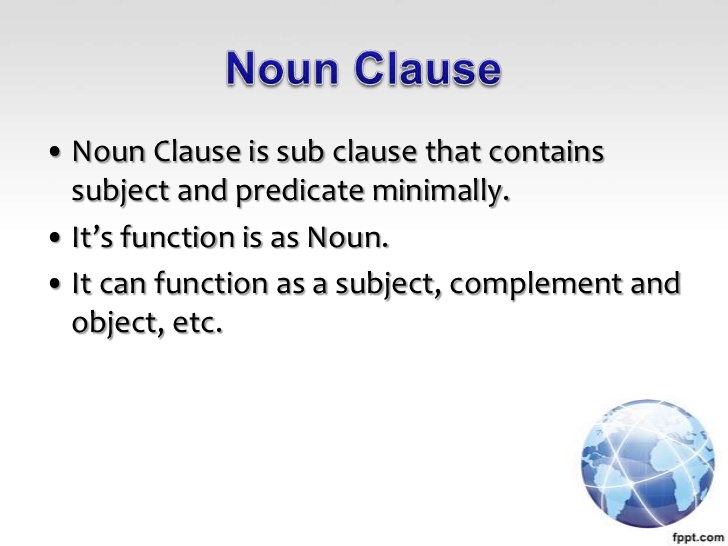 Complex Sentences : Noun Clause คือ อะไร ตอบ Noun Clause คือ ประโยคย่อยทำทำหน้าที่เสมือนคำนามหนึ่งคำอาจเป็นประธานหรือกรรมก็ได้ ในการสื่อสารด้วยภาษาอังกฤษผู้ส่งสารได้แก่ผู้พูดหรือผู้เขียนอาจต้องการสื่อสารข้อความที่มีรายละเอียดการอธิบายหรือขยายความอยู่ในข้อความที่เป็นประโยคเดียวกันซึ่งไม่อาจใช้คำนามเพียงคำเดียวหรือกลุ่มคำนามได้ในกรณีดังกล่าวส่วนที่ทำหน้าที่เป็นคำนามในประโยคอาจอยู่ใน รูปของประโยคอีกประโยคหนึ่งคือ
Complex Sentences : Noun Clause คือ อะไร ตอบ Noun Clause คือ ประโยคย่อยทำทำหน้าที่เสมือนคำนามหนึ่งคำอาจเป็นประธานหรือกรรมก็ได้ ในการสื่อสารด้วยภาษาอังกฤษผู้ส่งสารได้แก่ผู้พูดหรือผู้เขียนอาจต้องการสื่อสารข้อความที่มีรายละเอียดการอธิบายหรือขยายความอยู่ในข้อความที่เป็นประโยคเดียวกันซึ่งไม่อาจใช้คำนามเพียงคำเดียวหรือกลุ่มคำนามได้ในกรณีดังกล่าวส่วนที่ทำหน้าที่เป็นคำนามในประโยคอาจอยู่ใน รูปของประโยคอีกประโยคหนึ่งคือ
มีภาคประธานและภาคแสดง จึงมีลักษณะเหมือนประโยคย่อย ที่ซ้อนอยู่ภายใน โดยใช้คำนำหน้าประโยคย่อยนี้เพื่อ
เชื่อมต่อกับประโยคใจความหลัก ประโยคย่อยที่ทำหน้าที่เหมือนคำนามดังกล่าวเรียกว่า noun clause ซึ่งทำหน้าที่
ต่าง ๆ กันในประโยค โดยมีการใช้คำนำหน้าและสามารถลดรูปได้ นักศึกษาจึงควรเรียนรู้เพื่อให้สามารถสื่อสาร
ด้วยภาษาอังกฤษ ได้อย่างมีประสิทธิภาพดังรายละเอียดต่อไปนี้
1 หน้าที่ของ Noun Clauses
noun clause ทำหน้าที่ต่างๆดังต่อไปนี้
ในตัวอย่างข้างล่างประโยค a มีคำนามหรือกลุ่มคำนาม ( noun phrase) และประโยค b มี noun clause ในตำแหน่งเดียวกันกับประโยค a
1.1 Subject
a. His statement is correct.
b. What he said is correct.
| จากตัวอย่างจะเห็นได้ว่า What he said ( สิ่งที่เขาพูด) ใน ประโยค b เป็นประโยคย่อย คือมีภาคประธาน he และภาคแสดง said โดยซ้อนอยู่ในประโยคอีกประโยคหนึ่งและทำหน้าที่เป็น ประธาน ของประโยคนั้น เทียบได้กับกลุ่มคำนาม His statement ( คำพูดของเขา) ซึ่งเป็นประธานของประโยค a |
1.2 Direct Object
a. We doubt his way of doing it .
b. We doubt how he did it.
| จากตัวอย่างจะเห็นได้ว่า how he did it เป็นประโยคย่อยซ้อนอยู่ในประโยค b โดยทำหน้าที่เป็น กรรมตรง เทียบได้กับกลุ่มคำนาม his way of doing it ในประโยค a |
1.3 Indirect Object
a. He told the story to everyone .
b. He told the story to whomever he met
| จากตัวอย่างจะเห็นได้ว่า whomever he met เป็นประโยคย่อยซ้อนอยู่ในประโยค b โดยทำหน้าที่เป็น กรรมรอง เทียบได้กับกลุ่มคำนาม everyone ในประโยค a |
1.4 Object of a Preposition
a. His relatives are curious about his living place .
b. His relatives are curious about where he lives .
| จากตัวอย่างจะเห็นได้ว่า where he lives เป็นประโยคย่อยซ้อนอยู่ในประโยค b โดยทำหน้าที่เป็น กรรมตามหลังบุพบท เทียบได้กับกลุ่มคำนาม his living place ในประโยค a |
1.5 Subject Complement
a. The question is about the timing of parliament dissolution .
b. The question is (about) when parliament will be dissolved.
| จากตัวอย่างจะเห็นได้ว่า when parliament will be dissolved เป็นประโยคย่อยซ้อนอยู่ในประโยค b โดยทำหน้าที่เป็น ส่วนเสริมประธาน ที่ตามหลัง คำกริยา BE เทียบได้กับกลุ่มคำนาม the timing of parliament dissolution ในประโยค a |
1.6 Object Complement
a. You may name him Sam .
b. You may name him whatever you like .
| จากตัวอย่างจะเห็นได้ว่า whatever you like เป็นประโยคย่อยซ้อนอยู่ในประโยค b โดยทำหน้าที่เป็น ส่วนเสริมกรรม เทียบได้กับ Sam ในประโยค a |
1.7 Appositive
a. Jack, the hero in the story , needs to prove his innocence.
b. The fact that he was not at the murder scene needs to be proved.
| จากตัวอย่างจะเห็นได้ว่า that he was not at the murder scene เป็นประโยคย่อยซ้อนอยู่ในประโยค b โดยทำหน้าที่เป็น appositive เทียบได้กับกลุ่มคำนาม the hero in the story ในประโยค a |
2 คำนำหน้า noun clause
noun clause มีคำที่ใช้นำหน้าเพื่อเชื่อมกับ main clause คำที่ใช้นำหน้าดังกล่าว
เแบ่งออกเป็น 3 กลุ่มย่อยคือ
2.1 That
that นำหน้า noun clause ที่เป็นประโยคทั่วไปไม่ว่าจะเป็นประโยคบอกเล่า (affirmative statement)
หรือ ประโยคปฏิเสธ ( negative statement) ตัวอย่างเช่น
Affirmative statement : That he will come is certain. ( การที่ เขาจะมา เป็นสิ่งแน่นอน)
Negative statement: Jane replied that her boss would not be in tomorrow .
( เจนตอบ ว่า เจ้านายของเธอจะไม่อยู่พรุ่งนี้ )
คำว่า that มีความหมายว่า “ การที่ ” ในกรณีที่ noun clause เป็นประธานของคำกริยาใน main clause และ that มีความหมายว่า “ ว่า ” ในกรณีที่ noun clause เป็นกรรม ดังในตัวอย่างข้างต้น
อนึ่ง noun clause ที่นำหน้าด้วย that มีโครงสร้างของประโยคครบถ้วน การนำ that ไปวาง ข้างหน้า noun clause เป็นเพียงการเชื่อม noun clause กับ main clause
1) หน้าที่ของ noun clause ที่นำหน้าด้วย that
that สามารถใช้นำหน้า noun clause ที่ทำหน้าที่เป็นประธาน กรรม ส่วนเสริมประธาน กรรมตามหลัง
บุพบท และ appositive ตัวอย่างเช่น
Subject: That the majority of people in developing countries live in dire poverty is true.
Object: The government believes that the national economy will recover soon.
Subject complement: His ambition was that he wanted to become prime minister.
Object of a preposition: The twins are similar in that they love folk songs .
Appositive: The rumor that there is a serpent in the Mae Kong River may be true .
2) การละคำนำหน้า that
that ที่นำหน้า noun clause * ที่ทำหน้าที่บางหน้าที่ใน complex sentence สามารถจะละได้ในกรณี
ต่อไปนี้
กรณีที่ noun clause เป็น object
We believe (that) he told the truth.
The police assured us (that) the children would be found safe and sound.
I wish (that) I would win the first prize.
กรณีที่ noun clause เป็น subject complement
The reason is (that) he speaks English fluently.
My opinion is (that) you’d better stay home.
ตามหลังคำคุณศัพท์
I am sure (that) he can get a good job.
They are afraid (that) they cannot catch the 6 o’clock train.
* ( ในกรณีที่ noun clause เป็นประธาน ไม่ สามารถละ that ได้)
ข้อสังเกตเกี่ยวกับการใช้ that
appositive noun clause จะนำหน้าด้วย that เท่านั้นและไม่มีการละ that
The news that she won the beauty contest was published in all of the daily
newspapers.
noun clause ที่นำหน้าด้วย that ที่ใช้ตามหลังคำบุพบทมีเป็นจำนวนน้อย
โดยที่คำบุพบทที่จะตามด้วย “that” clause มักตามหลังคำคุณศัพท์หรือคำกริยาที่แสดง
ความเหมือนกันหรือต่างกัน เช่น similar, alike, different, differ
John and his brother are alike in that they enjoy folk music .
The two girls differed in that one was quiet while the other was talkative .
noun clause ที่นำหน้าด้วย that ไม่สามารถใช้เป็นกรรมรองหรือส่วนเสริมกรรมได้
that ที่นำหน้า noun clause ที่ทำหน้าที่ประธานของประโยค สามารถปรับเปลี่ยนโครงสร้าง
โดยใช้ impersonal pronoun “ it” นำหน้าประโยค แล้วนำ noun clause ไปไว้ท้ายประโยคได้
That he showed up at the party was a great surprise.
It was a great surprise that he showed up at the party .
2.2 Wh -words
wh -words ใช้นำหน้าข้อความที่เป็นลักษณะการถามข้อมูล เช่น
I doubt why you want statistical figures .
หน้าที่ของ noun clause ที่นำหน้าด้วย wh-words
noun clause ที่นำหน้าด้วย wh -words อยู่ในตำแหน่งของคำนามในประโยคได้ทุกตำแหน่ง
ยกเว้น appositive โดย noun clause ที่นำหน้าด้วย wh -words มีหน้าที่ต่างๆดังนี้
Subject: What he did was a serious mistake.
Object: She told me how I could raise more money for charity.
Indirect object: The man enjoyed explaining his theory to whoever was
interested in it.
Object of a preposition: The question of when the election will be held will be
answered by the Election Committee tomorrow.
Subject complement: You are what you eat .
Object complement: People call him whatever they like .
wh-words ที่ใช้นำหน้า noun clause จะมีหน้าที่บางประการใน noun clause ดังนี้
who, whoever, whom, whomever ทำหน้าที่เป็นประธานและกรรมใน noun clause
Whoever wins must treat us to lunch.
I want to know who he has chosen to marry .
whose คำนามที่ตามหลัง whose ทำหน้าที่เป็นประธาน กรรม กรรมตามหลังบุพบท
และส่วนเสริมประธาน ใน noun clause
I asked whose money was stolen.
Tell me whose book you are reading.
John doubted in whose house Jane lives.
I want to know whose book this is.
what, whatever ทำหน้าที่เป็นประธาน กรรม และส่วนเสริมประธานใน noun clause
I’m afraid of what will happen after that.
What I did was acceptable.
I want to know what her name is .
You should give him whatever he likes .
which, whichever มักมีคำนามตามหลัง โดยทำหน้าที่เป็นประธานและกรรมใน noun clause
I don’t know which brand is worth buying.
It’s half price for whichever book you buy.
You can choose whichever you like.
where, when, why, how ทำหน้าที่เป็นคำกริยาวิเศษณ์ ใน noun clause
:: where, wherever บอกสถานที่
Where he will stay has yet to be decided.
You should ask him where he wants to stay .
Wherever you go is the right place for me.
:: when, whenever บอกเวลา
You must find out when he is due to arrive at the airport .
We are interested in when the conflict will be resolved.
I don’t care whenever he does that .
:: why บอกสาเหตุหรือเหตุผล
Why he went to China was not known.
Nopadol told the teacher why he could not finish his assignment .
:: how บอกกิริยาอาการ
Describe how you felt at that time .
How he was involved in the scandal needs to be investigated.
2.3 If/Whether (… or not)
ใช้นำหน้าข้อความที่เป็นลักษณะการถามว่าใช่หรือไม่ if ใช้ได้เฉพาะนำหน้า noun clause ที่เป็นกรรม เท่านั้น ส่วน whether ใช้ได้ทุกกรณี
I wanted to know if/whether I could accompany him .
He asked if/whether or not he could take a day off.
There is no answer to whether the political turmoil will end soon .
Whether our team will win or not depends on luck.
ข้อสังเกต whether จะมี or not ตามหลังทันที ต่อท้ายประโยค หรือไม่มีก็ได้ แต่ if ไม่สามารถ มี or not ตามหลังทันทีได้
I wonder whether or not the weather will be fine on the day of our departure.
I wonder if/whether the weather will be fine on the day of our departure or not .
I wonder if/whether the weather will be fine on the day of our departure.
3 การลดรูป noun clause
noun clause สามารถลดรูปเป็นกลุ่มคำต่าง ๆ ได้ดังนี้
3.1 การลดรูป noun clause ที่นำหน้าด้วย that เป็น noun phrase
noun clause ที่นำหน้าด้วย that ลดรูปเป็น noun phrase โดยมีวิธีการลดรูปคือ
1) ให้เปลี่ยนคำกริยาให้เป็นคำนามและคำกริยาวิเศษณ์ให้เป็นคำคุณศัพท์ ถ้าประธานเป็นชื่อเฉพาะให้ใช้ ‘s
|
ประโยคที่ใช้ noun clause |
วิธีการลดรูป noun clause เป็น noun phrase |
|||
| That Tom behaved well made hisparents happy. |
|
แต่ถ้าเป็นคำสรรพนามให้ใช้คำคุณศัพท์ที่แสดงความเป็นเจ้าของ (possessive adjective) และตัด that ออก
|
ประโยคที่ใช้ noun clause |
วิธีการลดรูป noun clause เป็น noun phrase |
|||
| They know that he desires to marry her soon . |
|
2) ในกรณีที่ใน noun clause มีโครงสร้าง เป็น S + linking verb + ADJ ให้เปลี่ยนคำคุณศัพท์
เป็นคำนามและใช้คำคุณศัพท์ที่แสดงความเป็นเจ้าของซึ่งมาจากประธานและกริยาเชื่อมในประโยคเดิมนำหน้า
|
ประโยคที่ใช้ noun clause |
วิธีการลดรูป noun clause เป็น noun phrase |
|||
| That he is insincere is well known. |
|
3) ในกรณีที่ไม่ระบุเฉพาะเจาะจงว่าประธานเป็นใครดังในตัวอย่างข้างล่างซึ่งมี one เป็นประธานของคำกริยาใน noun clause สามารถตัดประธานออกได้
|
ประโยคที่ใช้ noun clause |
วิธีการลดรูป noun clause เป็น noun phrase |
|||
| That one is ignorant of school regulations is not an excuse to violate them. |
|
4) ในกรณีที่ noun clause ตามหลังคำคุณศัพท์ เมื่อลดรูปเป็น noun phrase ต้องมี คำบุพบท หลังคำคุณศัพท์ ซึ่งจะใช้คำบุพบทคำใดขึ้นอยู่กับคำคุณศัพท์นั้น
|
ประโยคที่ใช้ noun clause |
วิธีการลดรูป noun clause เป็น noun phrase |
|||
| I’m sure that I will succeed in climbing the mountain. |
|
3.2 การลดรูป noun clause ที่นำหน้าด้วย that เป็น gerund
noun clause ที่นำหน้าด้วย that ลดรูปเป็น gerund phrase ได้ โดยมีวิธีการลดรูปดังนี้
1) หากประธานใน main clause และใน object noun clause เป็นตัวเดียวกัน ให้นำคำกริยาใน noun clause มาเปลี่ยนเป็น gerund
|
ประโยคที่ใช้ noun clause |
วิธีการลดรูป noun clause เป็น gerund |
|||
| I forgot that I had given her permission . |
|
|||
| Kenny denied that he cheated on the examination . |
|
หมายเหตุ หากประธานใน main clause และใน object noun clause ต่างกัน มักจะไม่ลดรูป noun clause เพราะความหมายอาจแตกต่างไปจากเดิม
The chairperson accepted that the committee performed poorly.
ประธานคณะกรรมการยอมรับว่าคณะกรรมการทำงานไม่ค่อยมีประสิทธิภาพ ( เน้นไปที่คณะกรรมการไม่ดี)
The chairperson accepted the committee’s poor performance .
ประธานคณะกรรมการยอมรับการไม่มีประสิทธิภาพของคณะกรรมการ ( เน้นไปที่การทำงานไม่ดี)
2) ในกรณีของ subject noun clause ให้นำคำกริยามาเปลี่ยนเป็น gerund และใช้ ‘s ในกรณีที่ประธานเป็นชื่อเฉพาะหรือใช้คำคุณศัพท์ที่แสดงความเป็นเจ้าของแทนประธานที่เป็นคำสรรพนาม
|
ประโยคที่ใช้ noun clause |
วิธีการลดรูป noun clause เป็น gerund |
|||
| That Tom came late made him unable to finish the examination on time. |
|
|||
| That he came late resulted in him being unable to finish the examination on time. |
|
3) ในกรณีที่เป็น subject noun clause ซึ่งมีประธานเป็นบุคคลทั่วไปหรือ we, they, you และ one ให้เปลี่ยนคำกริยาเป็น gerund ได้โดยไม่จำเป็นต้องใช้คำคุณศัพท์ที่แสดงความเป็นเจ้าของนำหน้า
|
ประโยคที่ใช้ noun clause |
วิธีการลดรูป noun clause เป็น gerund |
|||
| That we sign the contract is vital to our company’s survival. |
|
3.3 การลดรูป noun clause เป็น infinitive
1) noun clause นำหน้าด้วย that ที่ทำหน้าที่กรรมของคำกริยาใน main clause สามารถลดรูปเป็น infinitive ได้
|
ประโยคที่ใช้ noun clause |
วิธีการลดรูป noun clause เป็น infinitive |
|||
| He claimed that he had lived on this land for 20 years. |
|
|||
| It’s time that we went home . |
|
2) noun clause ที่นำหน้าด้วย wh-word หรือ whether ลดรูปเป็น infinitive phrase ได้
ในกรณีที่ noun clause มีประธานเป็นบุคคลทั่วไปหรือ you, we และ one และมี modal แสดงเหตุการณ์ที่จะเกิดขึ้นในอนาคต ในการลดรูปยังใช้ wh-word ที่เป็นคำนำหน้าและเปลี่ยนคำกริยาให้เป็น infinitive
|
ประโยคที่ใช้ noun clause |
วิธีการลดรูป noun clause เป็น infinitive |
|||
| She asked the referee who should be declared the winner. |
|
|||
| Tell me how you can fix the oven. |
|
|||
| What we should do depends on the situation. |
|
















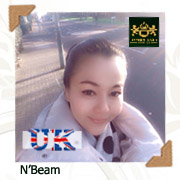


















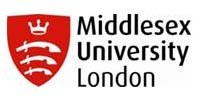












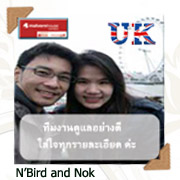
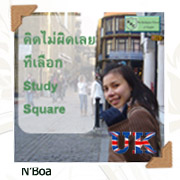



















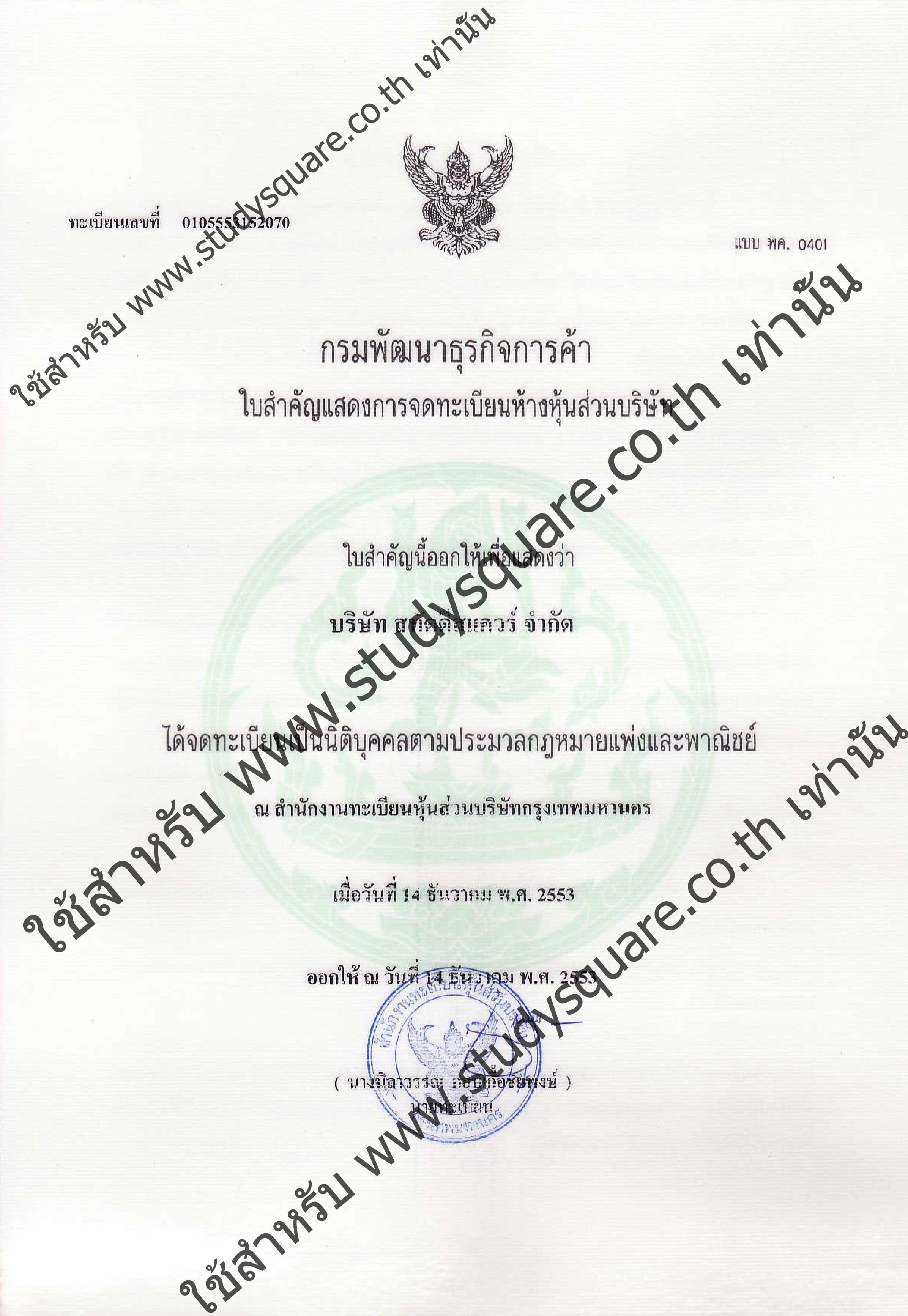

















ความเห็นล่าสุด